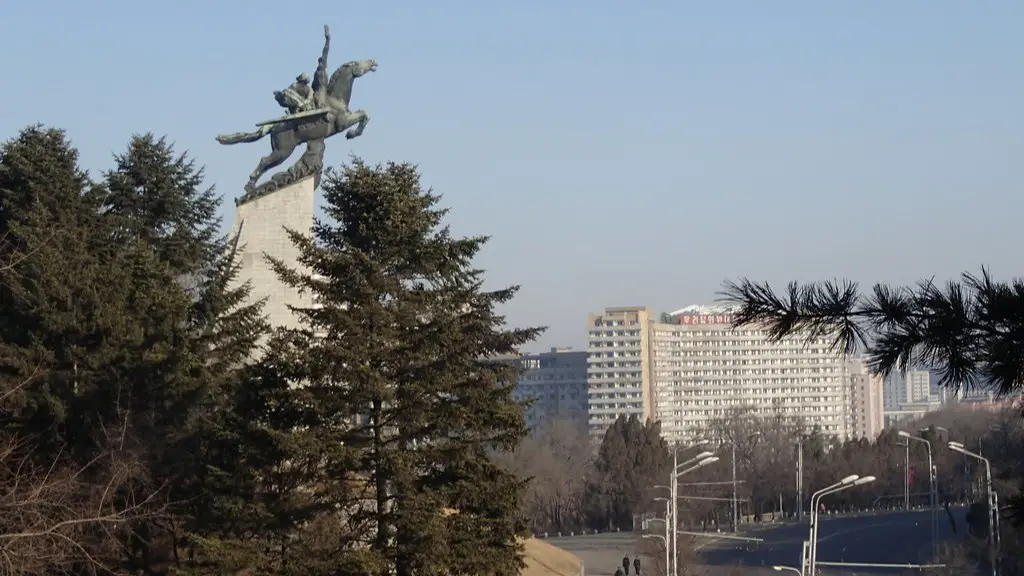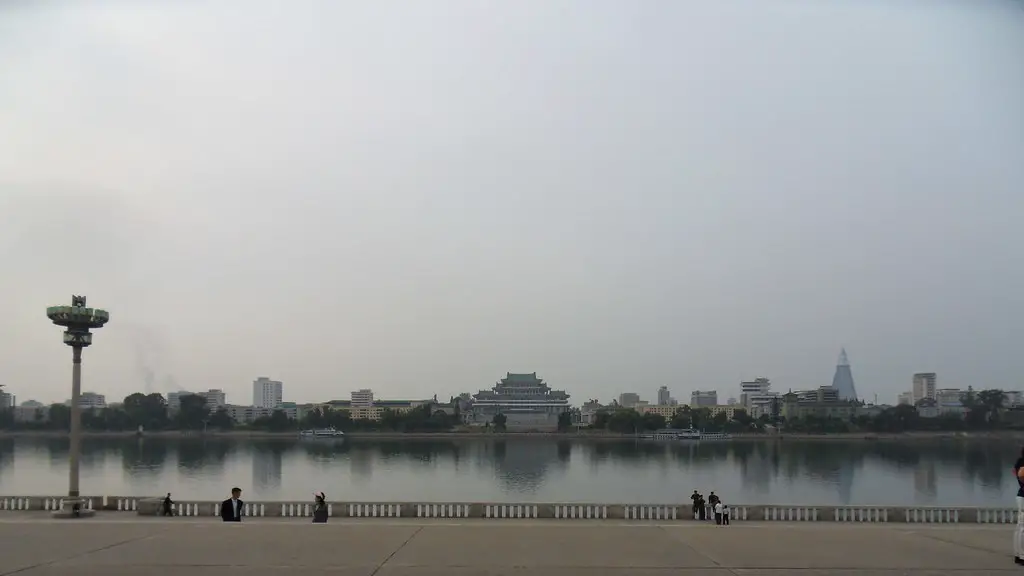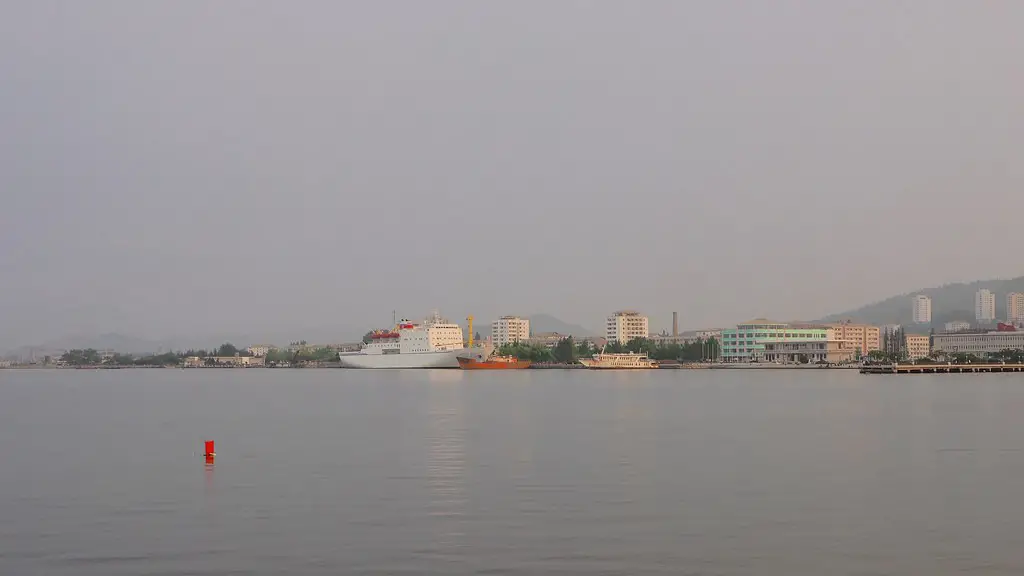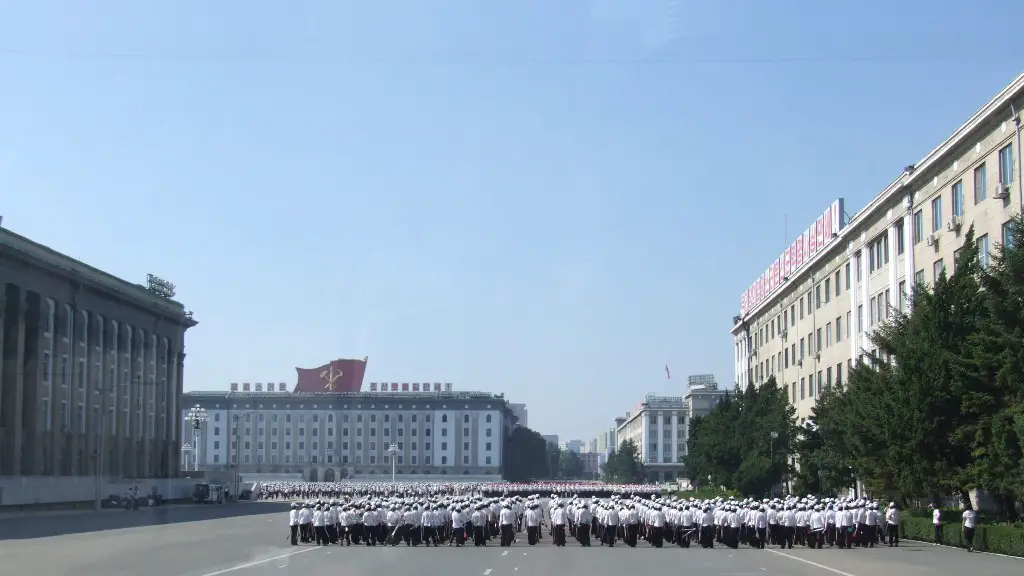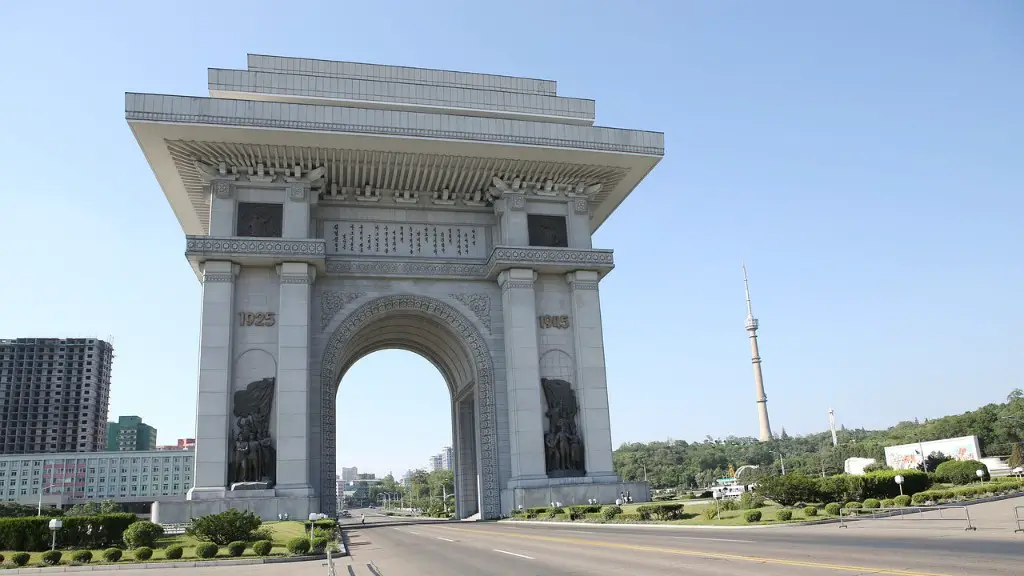The Democratic People’s Republic of Korea (DPRK), commonly called North Korea, has been hostile for decades—long before the nuclear missile program that the United States, South Korea, and China are trying to contain. It’s perennial belligerence has been on full display with recent threats against South Korea, the United States, and Japan, as well as its various military exercises. But why is North Korea so hostile?
To begin to understand the motives behind North Korea’s behavior, one must look to its checkered past. The Korean peninsula was divided into North and South following World War II, after the Soviet Union occupied the north and U.S. forces in the south. By 1950, North Korea had declared itself to be the Democratic People’s Republic of Korea, while the south declared itself the Republic of Korea. The DPRK’s relationship with its southern neighbor, and its allies, has been hostile since its formation.
The DPRK’s human rights record is deeply concerning. North Korea is one of the most oppressive and isolated countries in the world. The North Korean government maintains an extreme level of control over its citizens, brutally punishing anyone suspected of criticising the regime. This has created a climate of fear and mistrust, causing many citizens to adopt a “foreign policy of nuclear weapons.” The DPRK’s nuclear ambitions, current or potential, are motivated by a sense of insecurity, as the country seeks to defend itself from perceived foreign threats and maintain its self-determination.
The international community also has a role to play in understanding why North Korea is so hostile. For decades, the DPRK has felt threatened by the actions of neighboring countries and the UN Security Council—including numerous economic and travel sanctions. North Korea worries that these sanctions could be a prelude to an all-out military attack.“From the North Korean perspective, any country that seeks to pressure or isolate it is considered an enemy and must be deterred,” says Dr. John Park, a North Korea analyst and former advisor to the US government.
The United States has also been an adversarial force in North Korea. The 1950-53 Korean War was a major turning point in the DPRK’s relationship with the US. During the war, US-led forces destroyed much of North Korea, leading to widespread death and destruction. Following the war, the US maintained a troop presence in South Korea for decades, and continues to do so today. The DPRK sees this as a provocation and reason for maintaining a robust military and nuclear program.
The DPRK’s attitude towards the outside world is mainly a reflection of its own sense of insecurity and paranoia. The country seems to believe that any foreign group or nation that threatens its national interest should be met with an aggressive response. This strategy has been employed with recent threats to South Korea, the United States, and Japan—signalling that the DPRK is willing to go to great lengths to defend its sovereignty.
The key question that remains is: how can we move beyond hostility towards North Korea? Until now, negotiations have largely failed, and North Korea continues to view US and South Korea as hostile forces. Ultimately, the DPRK will have to decide if it wants to move away from its hostile posture, and begin to trust the international community and its neighbors. The US and South Korea will also have to make a commitment to diplomatically engaging with the DPRK, while also taking its security concerns seriously.
Economic Sanctions
The international community continues to impose economic sanctions on North Korea. These sanctions are meant to coerce or punish North Korea for refusing to dismantle its nuclear infrastructure. The sanctions have only worsened the already dire economic situation in the DPRK. In response, the North Korean government has continued to prioritize defense spending and nuclear initiatives, over providing humanitarian aid to its citizens. This has led to widespread food shortages and poverty, driving North Koreans to become even more reliant on the government.
The continued humanitarian crisis in the DPRK means that the regime has even less incentive to reduce its hostile demeanor. According to the United Nations, nearly two-thirds of the population are facing food insecurity, and roughly thirty percent of children are suffering from malnutrition. This is a direct result of the economic sanctions, as the already impoverished country is unable to import enough food and medical aid to its citizens. In the long run, economic sanctions are unlikely to improve North Korea’s stance on nuclear proliferation, or its hostile attitude.
The international community has long argued that economic sanctions could be the key to ending North Korea’s hostile behavior. However, the question remains whether such sanctions can truly improve the situation or make it worse. Economic sanctions have inflicted great suffering on North Koreans, while also failing to compel the regime to alter its stance. Unless the international community is willing to take a more diplomatic approach to North Korea, economic sanctions will continue to have little effect.
Ongoing Negotiations
The ongoing efforts to negotiate a diplomatic resolution to the North Korean crisis have been largely unsuccessful. After the leaders of North Korea and the United States met in 2018, it seemed as if a deal to denuclearize North Korea could be within reach. However, negotiations have since broken down and any progress made has been slow in coming. The breakdown in talks has been blamed on both sides, with North Korea accusing the United States of reneging on its commitments, and the US accusing the DPRK of violating the agreed upon terms.
Further negotiations are needed if the situation is going to improve, but the major powers involved must take steps to ensure that negotiations are productive. The United States and the DPRK must come to the table with flexibility and patience, in order to find a compromise that is amenable to both sides. These negotiations should also be broadened to include other major players in the region, such as South Korea and China.
North Korea must also recognize that it cannot continue its hostile attitude forever. If the DPRK is to move forward, it must be willing to accept some concessions and trust the international community. Such concessions could include moving towards disarmament, human rights reforms, and increased economic and diplomatic ties with its neighbors.
Conclusion
Ultimately, North Korea’s hostile stance is rooted in deep-seated insecurity and paranoia. To move beyond hostility, North Korea must break out of its isolation and begin to trust the international community and its neighbors.
The international community must also take a more reasonable approach to the DPRK, by offering diplomatic engagements and economic aid in addition to sanctions. Only by showing empathy and understanding to the North Korean regime can the international community truly hope to improve the situation.
Regime Control and Stability
The stability of the North Korean regime has been a major concern for international observers for decades. The regime maintains an extreme level of control over its citizens, often brutalizing and imprisoning those who dare to challenge its authority. The regime’s control is so extreme that it has been able to effectively use fear and intimidation to silence critics, making it hard for news and information to make its way in or out of the country.
The North Korean regime has managed to keep its grip on power despite international condemnation and economic sanctions. The regime’s strategy has been to maintain an atmosphere of fear while simultaneously calling for nationalistic values, such as loyalty to the government and pride in the country’s leaders. This strategy has been effective in keeping the North Korean people in line.
The North Korean regime’s grip on power is a major factor in understanding why the country is so hostile. The regime’s hostile attitude towards the outside world can largely be seen as a defensive measure, by a government trying to maintain control over its people and protect itself from perceived foreign threats. Without effective internal and external pressure, it is unlikely that the regime will change its stance.
Continuous Military Preparation
North Korea has long sought to maintain a robust military capability, in order to protect itself from foreign aggression. The country spends an estimated 25 percent of its GDP on defense, far higher than any other country in the region. North Korea has invested heavily in a range of military initiatives, including the development and testing of ballistic missiles and other weapons of mass destruction.
The DPRK’s ongoing military buildup is a major factor in its continued hostile attitude towards other countries. The North Korean government believes that if it can maintain a robust military, it can deter any potential aggression from the United States or its regional allies. This strategy may be effective in the short term, but in the long run it is unlikely to reduce the hostility between the DPRK and its adversaries.
While military buildup can be seen as a defensive measure, it also perpetuates an atmosphere of fear and mistrust. North Korea’s military provocations have been met with a mix of sanctions and military drills from the United States and its regional allies, creating an even more hostile environment. Unless North Korea steps back from its military buildup and begins to take a more diplomatic approach, the hostile atmosphere is likely to continue.
Role of China
China has long been an influential force in the North Korean crisis. The Chinese have sought to maintain good relations with the DPRK, while also condemning its nuclear ambitions and human rights abuses. China has sought to use its economic power to influence the North Korean regime, providing aid and economic assistance.
Although China has condemned the DPRK’s nuclear ambitions, it has also provided strong diplomatic and economic support. This has prompted criticism from some in the international community, who believe that China is propping up the regime and allowing it to continue its hostile behavior.
Ultimately, China’s role in the North Korean crisis is still an area of contention. While China has attempted to be a voice of moderation, it has also been accused of enabling the DPRK’s hostile behavior. If China is to play a constructive role in the North Korean crisis, it must be willing to take a firmer stance on the DPRK’s human rights abuses and nuclear ambitions.
